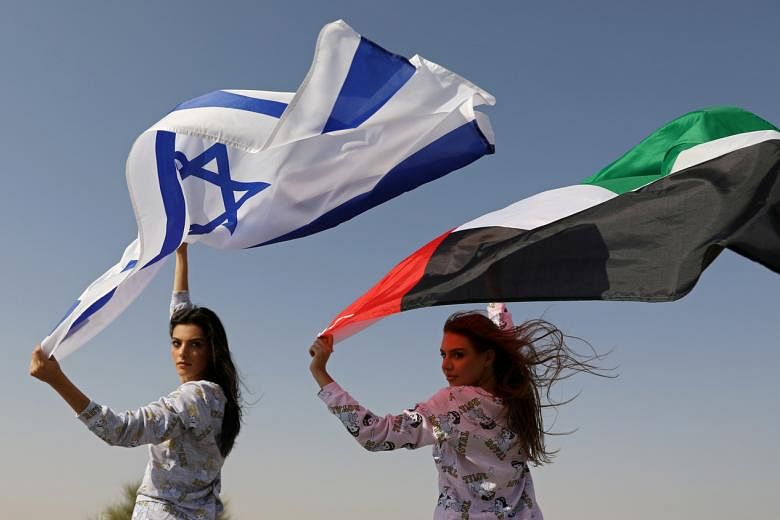Key moments in Israel's history:
Creation of Israel
Israel was formed on May 14, 1948, out of part of Palestine three years after the end of World War II, when the Nazis killed more than six million Jews. It comes under attack by its Arab neighbours, but repels them. More than 760,000 Palestinians are driven out or flee, becoming refugees.
Suez crisis
In 1956, Israel attacks Egypt alongside Britain and France, which are seeking to overturn the nationalisation of the strategic Suez Canal. They eventually withdraw under pressure from the United States and the then Soviet Union.
Six-day war
In June 1967, Israel wins a crushing victory over its Arab neighbours in the Six-Day War. It seizes the West Bank - including East Jerusalem - from Jordan and the Golan Heights from Syria as well as the Gaza Strip and the Sinai Peninsula from Egypt.
First peace treaty
The year after the historic 1977 visit to Jerusalem by Egypt's president Anwar Sadat, Israel and Egypt agree on peace terms after US-brokered talks. The Camp David accords are the first peace agreement between Israel and an Arab state. The treaty is signed in 1979 by Israeli Prime Minister Menachem Begin and Mr Sadat.
Second peace treaty
A second peace accord, with Jordan, comes in 1994, signed by prime ministers Yitzhak Rabin and Abdel Salam Majali.
Intifadas
The first Palestinian intifada, or uprising, erupts in 1987. It ends in 1993 when Israel agrees to limited Palestinian autonomy in the West Bank and Gaza Strip as an interim step towards a comprehensive peace agreement, which has yet to emerge. The second intifada breaks out in 2000 when right-wing Israeli opposition leader Ariel Sharon pays a provocative visit to the Al-Aqsa mosque compound in annexed East Jerusalem.
Withdrawal from Gaza
In 2005, Israel withdraws all troops and settlers from Gaza after 38 years of occupation. It imposes a crippling blockade after Islamist group Hamas seizes control in 2007. It carries out three deadly offensives against the territory in six years, the latest in 2014.
Trump's support
In December 2017, US President Donald Trump recognises Jerusalem as Israel's capital. The declaration is condemned by the Palestinians, who regard East Jerusalem as the capital of their future state.
In May 2018, Washington transfers its embassy to Jerusalem.
1981 annexation recognised
In March 2019, Mr Trump formally recognises Israel's 1981 annexation of the Golan Heights.
Middle east peace plan
On Jan 28, Mr Trump unveils a controversial Middle East peace plan that paves the way for the annexation of swathes of the West Bank by Israel. On Aug 13, Mr Trump says Israel and the United Arab Emirates have reached a historic agreement to normalise ties. Under the deal, Israel agrees to "suspend" annexation of parts of the occupied West Bank.
On Sept 11, Mr Trump announces Bahrain and Israel will also normalise relations. Within a month of the Sept 15 signing of the accords, Israel approves plans for 4,948 more settler homes in the West Bank.
AGENCE FRANCE-PRESSE

